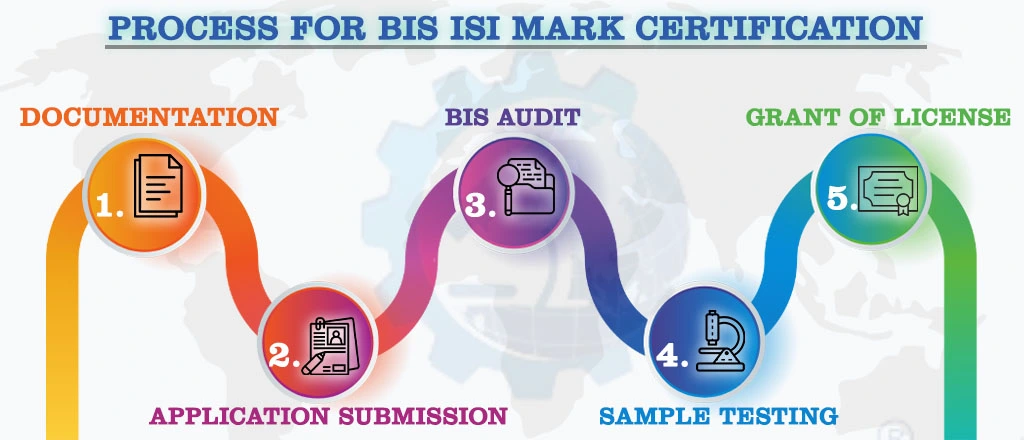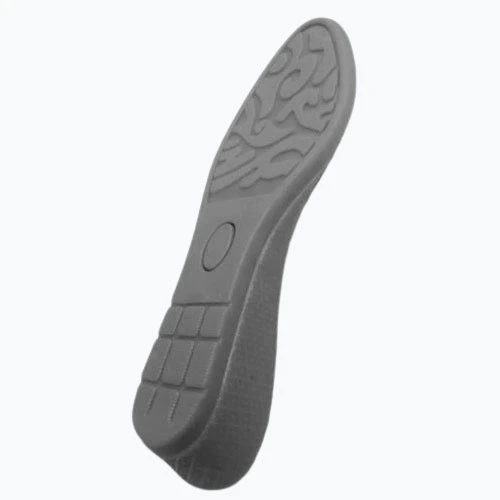BIS CERTIFICATION FOR SOLID PVC SOLES AND HEELS
IS 6719:1972
When we are a manufacturer, we always want to increase our market share and brand values. In this competitive scenario, it isn't easy to survive in the market without a standard quality and certified product. BIS license may also be required to sell product in Indian market.
To get BIS certification and produce a standard quality product, ensure that your product must follow the specified Indian Standard for that product.
Let's take a closer look at IS 6719:1972 for solid PVC soles and heels.
Solid PVC soles and heels are covered under IS 6719:1972. The requirements for PVC soles and heels intended for footwear manufacture and footwear repair are specified in this standard. The specification excludes the design of the soles and heels and the PVC composition and only specifies the essential physical requirements.
This standard specifies the requirements and the sampling and testing methods for PVC full solid soles with or without heels, half soles, and heels sold as finished goods and manufactured by either direct injection or stuck on the process. This standard does not apply to all PVC shoes' soles and heels.
The materials used for soles and heels shall be made of PVC resin or blend with its copolymers. The resins would be compounded with appropriate plasticizers and stabilizers. The surface must be free of blemishes and flaws. The purchaser and supplier must agree on the size and thickness of the soles and heels. The hardness of PVC soles and heels must be between 65 and 75 IRHD. The material shall conform to the physical requirements specified in the standard.
Tests
The following major test shall be carried out for PVC soles and heels.
- Thickness test
- Relative density test
- Tensile strength test
- Tear strength test
- Volatility test
- Test for lead
- Hardness test and any other as specified in the standard.
A laboratory shall be maintained, in which the various tests shall be carried out as per the methods defined in the standard.
Each sole and heel shall bear the name of the manufacturer or trademark, if any, as well as the size and type of footwear for which it is intended. The product may also be marked with the ISI certification mark, and packaging and marking must be done in accordance with the standards. The Manufacturer must obtain a BIS license from the Bureau of Indian Standards to use a standard mark (ISI Mark). The BIS grants a license based on a successful assessment of manufacturing infrastructure, quality control and testing capabilities, and production process.

NOTE:
For Detailed Information about the Procedure for BIS ISI Certification,
Visit :
ISI Mark Certification for Domestic ManufacturersISI Mark Certification for Foreign Manufacturers
Conclusion:
If a product falls under the scope of the BIS Conformity Assessment Scheme, All the manufacturers, importers, and foreign entities must obtain BIS ISI Certification. The Bureau may cancel the License if the product fails to meet certification requirements.
Aleph INDIA has been serving the industry as a single-window operator for all product regulatory compliance. We can assist importers or manufacturers in meeting all criteria for importing or selling a product in the Indian market.
International Audits & Participation
Testimonials
BIS REGISTRATION FOR ELECTRONIC & IT PRODUCT
In the era of globalization, world trade is growing rapidly and henceforth, Manufacturing and Import/Export businesses are also growing drastically...View More
BIS CERTIFICATE FOR FOREIGN MANUFACTURER
The Economy of India-the fastest developing economy on the globe with the capabilities that help it matches up with the biggest international...View More
PRODUCT CERTIFICATION SCHEME (ISI MARK) FOR DOMESTIC MANUFACTURERS
Anything a person buys from food to cars, clothes to electronics, branded to unnamed products there is always a question that wanders in one’s...View More
WIRELESS PLANNING AND COORDINATION (WPC)
WPC: Wireless means communication done from one point to another point without the wires and cables. Electromagnetic waves carry the ...View More
BUREAU OF ENERGY EFFICIENCY (BEE) CERTIFICATE
BEE CERTIFICATE: Energy is the future, and its conservation is the way of the bright future. Everyone claims the environment is important...View More
E-WASTE MANAGEMENT
E-waste is one of the world's fastest-growing trash streams. We currently manufacture almost 50 million tones of it each year...View More
Request a call back.
Would you like to speak to one of our Senior Technical advisers over the phone? Just submit your details and we’ll be in touch shortly. You can also email us if you would prefer.
BIS REGISTRATION FOR ELECTRONIC & IT PRODUCT
In the era of globalization, world trade is growing rapidly and henceforth, Manufacturing and Import/Export businesses are also growing drastically...View More
BIS CERTIFICATE FOR FOREIGN MANUFACTURER
The Economy of India-the fastest developing economy on the globe with the capabilities that help it matches up with the biggest international...View More
PRODUCT CERTIFICATION SCHEME (ISI MARK) FOR DOMESTIC MANUFACTURERS
Anything a person buys from food to cars, clothes to electronics, branded to unnamed products there is always a question that wanders in one’s...View More
WIRELESS PLANNING AND COORDINATION (WPC)
WPC: Wireless means communication done from one point to another point without the wires and cables. Electromagnetic waves carry the ...View More
BUREAU OF ENERGY EFFICIENCY (BEE) CERTIFICATE
BEE CERTIFICATE: Energy is the future, and its conservation is the way of the bright future. Everyone claims the environment is important...View More
E-WASTE MANAGEMENT
E-waste is one of the world's fastest-growing trash streams. We currently manufacture almost 50 million tones of it each year...View More
View All Services
Request a call back.
Would you like to speak to one of our Senior Technical advisers over the phone? Just submit your details and we’ll be in touch shortly. You can also email us if you would prefer.






























